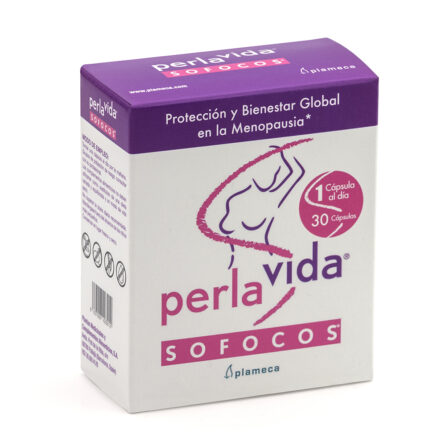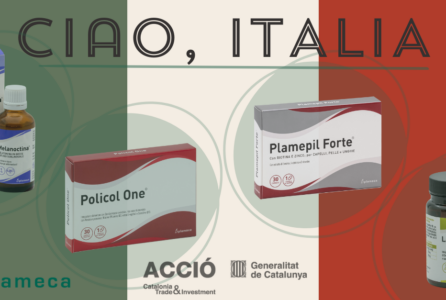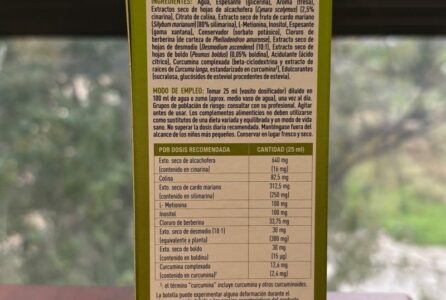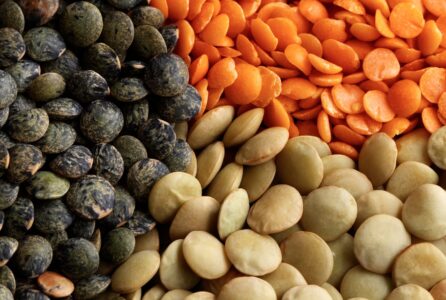Hormonal changes, emotional ups and downs, sweating and hot flashes, insomnia... The transition to the menopause can be a nightmare. In addition to these discomforts, there are other problems such as the weight gainthe increase in the levels of cholesterolthe rise in blood pressure (hypertension) or decalcification of the bones. In this article I will give you some dietary guidelines for menopause to alleviate these imbalances, but not before explaining why they occur.
The menopause is the end of a woman's reproductive stage and occurs with the cessation of the last menstrual period. Some time before, there is a transition period called premenopause, which usually occurs between the ages of 45 and 55, in which the ovaries stop producing eggs and, therefore, hormones (estrogens and progesterone). This means that menstruation becomes increasingly irregular until it finally disappears. It is considered to have reached the menopause when it is one year since the last menstrual period. The transition can last between 2 and 5 years.
The first physical change that we usually experience when we are approaching the menopause is a decrease in muscle mass and an increase in fat, which is deposited in the abdominal perimeter. As a result, the levels of cholesterol in the blood and increases blood pressure. The onset of osteoporosis is also very frequent.
Dietary recommendations in menopause
- To reduce abdominal fat. Reduce as much as possible the consumption of saturated fats (meats, sausages, pastries...) and increase the consumption of unsaturated fats (oily fish, olive oil, nuts...). If you eat more unsaturated fats, you will increase your levels of good cholesteroli.e., high-density lipoproteins (HDL).
- To lose weight. Due to the easy accumulation of fat in the body, there is also weight gain. It is recommended to go on a diet, to lose the acquired weight. You can contact our dieting service Plan 21: just get in touch with the site plameca.com and in the link dietitians you will find the nearest center to your location.
- To lower cholesterol levels. One of the misalignments inherent to the menopause is the increase in cholesterol total and the decrease in good cholesterol. While we women are of childbearing age and have our periods, the levels of cholesterol are compensated and we have a lower risk of cardiovascular disease than men. When we reach menopausewe are equal to them.
- To counteract hypertension. The less salt, the better! Also, you have to drink a lot more fluids (water). Are you familiar with the feeling of bloating? It's because of fluid retention. Our body is wise and the more water you drink, the more it drains. It is recommended to drink between 1.5 and 2 liters per day.. If fluid intake is low, the body tries to retain fluids.
- To stop osteoporosis. Bone decalcification is a common occurrence in the menopause. To combat it, you should increase your calcium intake by consuming dairy products (semi-skimmed or skimmed, to avoid excess fat). To ensure the assimilation of calcium, vitamin D is necessary, which we get with sun exposure and moderate exercise (walking, etc.), runswimming...). Foods rich in vitamin D are eggs and oily fish.
- To attenuate hot flashes and sweating. Soy isoflavones will help you alleviate hot flashes. You can take soy in the form of a drink, yogurt, tofu or as a legume. Our Isoretard also contains isoflavones and sage, a plant traditionally used for menstrual disorders. menopause and sweating.
- For a better sleep. Try to eat an early and light dinner. Avoid spicy foods and exciting drinks such as tea or coffee. You already know that the melatonin helps to reduce the time needed to falling asleep. Taking 1 mg of melatonin shortly before going to sleep, it takes effect. Our Melanoctina contains 1.95 mg of melatonin, so if you always take it around the same time, you'll fall asleep in no time!
I encourage you to incorporate these changes and let us know how it went by writing a comment at the end of this article - your experience can help many other women!
Iolanda Almirall CandelarioDiploma in Dietetics and Human Nutrition
[resum] [resumBy incorporating some changes in your diet, you can alleviate imbalances and discomforts typical of menopause such as increased cholesterol levels, increased blood pressure and bone decalcification. [/resume]






